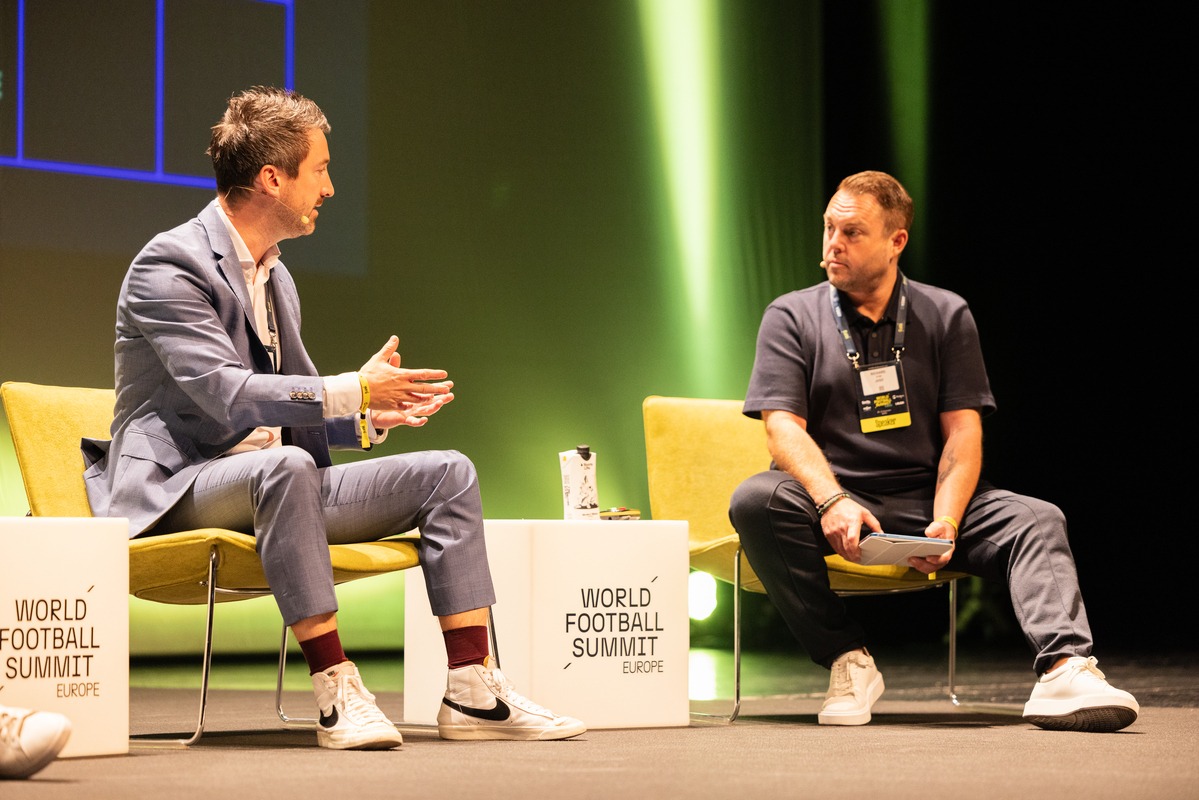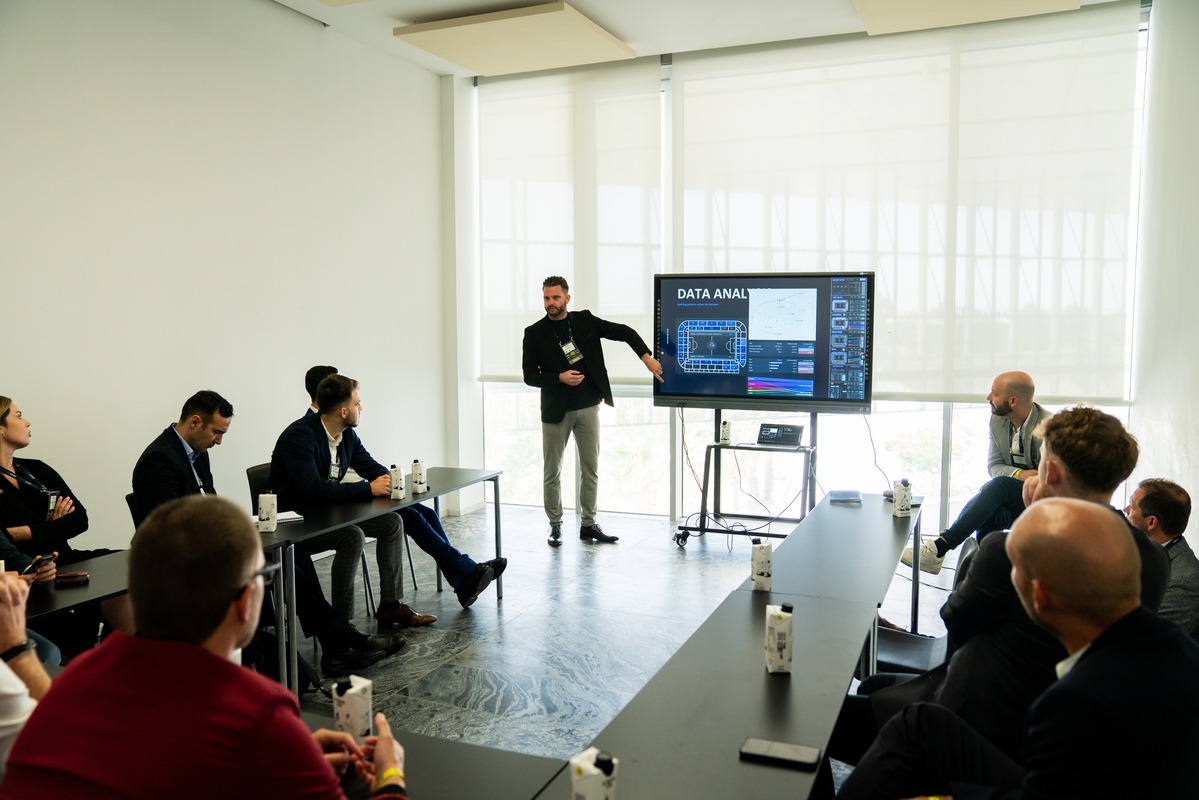In an age when most clubs have overrun their potential to increase their revenue, only those daring enough to innovate will position themselves in the economic lead. Club Brugge and Eintracht Frankfurt tell us how they are doing it, and how it is already paying off
If you ever happen to find yourself walking around the Belgian city of Bruges in the mood for a football match, reaching the ticket office of the Jan Breydel Stadium during rush hour minutes before a match will not do you any good ―even in the odd case that the stadium isn’t sold out. As you’d find out, you wouldn’t be able to purchase a ticket for the match that day. In fact, you wouldn’t be able to purchase a ticket for any upcoming matches at all, because the ticket office isn’t selling tickets anymore. The club, however, is selling as many tickets as ever. Just not through its office.
“About four years ago, we decided to make our tickets available exclusively digitally”, pointed out Thomas Rypens, Direct-to-Consumer Director at Club Brugge, during an interview in the World Football Summit Podcast. “At that point, we were actually amongst the first clubs to make that move, and now our ticket office is only open on game days for questions and support inquiries, like a card not working or a ticket not scanning”.
This was the first of the many innovative measures introduced by Club Brugge during the past few years as a means not necessarily to gain the upper hand in the economic side of the sports industry, but rather not to lose what they already had.
The club understood quite early on that continuing to operate on the traditional framework of the football industry was eventually going to lead them, first, right into a dead end, and later, drop them into an ever-increasing setback. They had to keep up with the world. So they concluded that ―to quote Giuseppe Tomasi di Lampedusa― things would have to change to remain the same. And they are not the only ones who’ve come to that realization.
EINTRACHT FRANKFURT’S WAKE UP CALL
“Every transformation needs a specific reason to happen”, said Timm Jäger, CEO of EintrachtTech at Eintracht Frankfurt, another club that’s spearheading innovation in football, during an interview in World Football Summit Podcast. “In our case, back in 2017, we found ourselves at a point where revenues were growing stale”.
Every football club has three main sources of income: television rights, sponsorships, and match-day revenues. And, for Eintracht Frankfurt, there was no room to grow on either of them. “We couldn’t do it with sponsorships or TV rights because we were fully covered, and our ticketing is sold out every time, and we don’t optimize them on price either: we purposely keep them low so that even people who don’t have a lot of money can come to the matches. That’s important to us”.
“The club needed to be more innovative and digital to better the situation on the business side, to use it in the sports side”
So, in addition to competing with every club in Europe on the field, just like Club Brugge, the German team found themselves competing with all of them on the business side as well. And they weren’t winning. “We are not funded by external brands or investment funds”, Jäger explains. “The club needed to be more innovative and digital if we wanted to keep growing, so this was our starting point. We decided to start the journey to better the situation on the business side, to use it in the sports side”. And the strategy seems to be paying off, as Eintracht has established itself as one of the top 20 clubs in the Deloitte Money League report.
THE BIRTH OF EINTRACHT TECH
“Being a hundred-year-old club, we obviously had a lot of legacy systems and we had a lot of sources of data, and nothing fit together: systems were old and the data was a mess”, explained Jäger. “We decided to be on the vanguard, so we spoke with a lot of national and international tech companies, but we realized that what they were offering us was not exactly what we were looking for: the football industry is very specific, and their tools would only work had they been customized, which of course was well beyond our budget”.
They knew innovation was the only way to success, so instead of tiptoeing around the subject, they decided to double down: “We came up with a sort of crazy idea and we became a small software developer company”. With an original team of only two people, they decided to redevelop in-house their ticketing system, ecommerce, content management system, and analytics tools to control every digital touchpoint. “We have achieved one of the most modern infrastructures in German football”, Jäger proudly shared.
FROM A FOOTBALL STADIUM TO A TECH LAB
But once they started betting on innovation, they did not leave it at that. Alongside the software development, their revenue streams include e-sports, mainly FIFA and League of Legends, where they are competing in the highest European leagues; tech conferences and, their second biggest bet, which was the Deutsche Bank Park stadium.
“We invested heavily in technology for the stadium itself”, explained Jäger. “We wanted to take it one step forward, so we’re using it as a playing field for innovative national and international tech companies to experiment”. Among their research, some of the key subjects of the future, including smart energy, smart waste management, smart facility management, and autonomous driving. “If those solutions work here, they can work in airports, stations, malls… Anything”.
OFFERING FOOTBALL FANS A NEW KIND OF STADIUM EXPERIENCE
Clubs, however, are not just like any other business. They depend on fans for survival as much as they do for their existence, and fans aren’t always the most change-forward crowds in the world, particularly if their club exists within a hefty historical heritage.
Club Brugge is one of them, and they have been very cautious about how they implement innovation. “Fans are change-resistant, particularly if they’ve been doing things the same way for twenty years. “I think for everyone trying to bring anything to fans, it is not about making people want things, but about making things people want”, explained Thomas Rypens in the World Football Summit Podcast.

“But yes”, he continued, “initiatives are very tricky when people are very connected to the brands”. Indeed, they have to convince 28.000 people that they are making the correct choices with their favorite team, and that, as he put it, is quite a journey: “When trying new things, we want to reward the loyal fans, which is why we developed our cash-back system, which is connected to the season ticket and the fan’s Club ID. It grants you access to the stadium, but also doubles as a payment card that gets you a 5% cashback on every transaction you do at the club, including buying tickets”.
When this measure was met positively by the fans, just like Eintracht Frankfurt, they went even further and chose to double down. One of their main problems was that fans arrived at the stadium quite late, not long before the match started, which wasn’t ideal for the atmosphere or the spending pattern. “You don’t want 28.000 people walking into the stadium at the same exact time”, said Rypens.
«It is not about making people want things, but about making things people want.»
Now, every ID member who comes at least 30 minutes before the game gets a cashback of 50 cents on any item they buy in the stadium. “If we can improve the distribution of people coming in time-wise, we can already shorten the queues and make the experience better”, explained Rypens.
Reducing friction is key in the stadium experience, just as we discussed in Football Innovation Forum 2023.
That respect for fans translates into a lot of testing: “Instead of implementing something for 24.000 people at once, we try smaller crowds to see how they perceive that. It’s been a learning curve because our point is not to monetize sports fans. We don’t focus on how we get more money out of them, but on understanding their interests for a better experience.
HOW CAN CLUBS IMPLEMENT INNOVATION?
In the future, clubs will undoubtedly have to face changes to keep up with the innovators once their innovations aren’t new anymore ―just part of daily reality. But for the time being, getting ahead of the curve can make quite a positive difference in their economic prospects. “Each club must find the right path for them”, said Timm Jäger.
To implement innovation, however, he points out the importance of overwatching your strategy and making sure you have a solid starting point: “Ours was not good enough, and we spent a year and a half developing and optimizing our systems”. He also highlights transparency, both internally and externally. “You have to create an atmosphere where people understand what you’re trying to do”, he added. And finally, he encourages people to get top management support which is something upon which they agree with Club Brugge.
“When you change people’s work dynamics and the way they operate, tension arises naturally”, says Club Brugge’s Thomas Rypens. “Innovation is the word in every slide deck, but you have to know how to actually implement it, connect it to a greater vision, and make it happen. And for that to happen, you also need people who are willing to take a risk, and lead those budget discussions”.
Thought leaders, then, are crucial in processes of change within football clubs. Not only their presence but their conviction that progress is the only way forward. That is why World Football Summit, we are committed to innovation and celebrate it in events like the Football Innovation Forum, which in 2024 will be celebrated on the 31st of May in London. You can apply for attendance by visiting our web and learning how innovation, in football, is the sure road to success.
And if your brand is looking to help football properties worldwide embrace innovation, get in touch with our team, and let’s make it happen!

